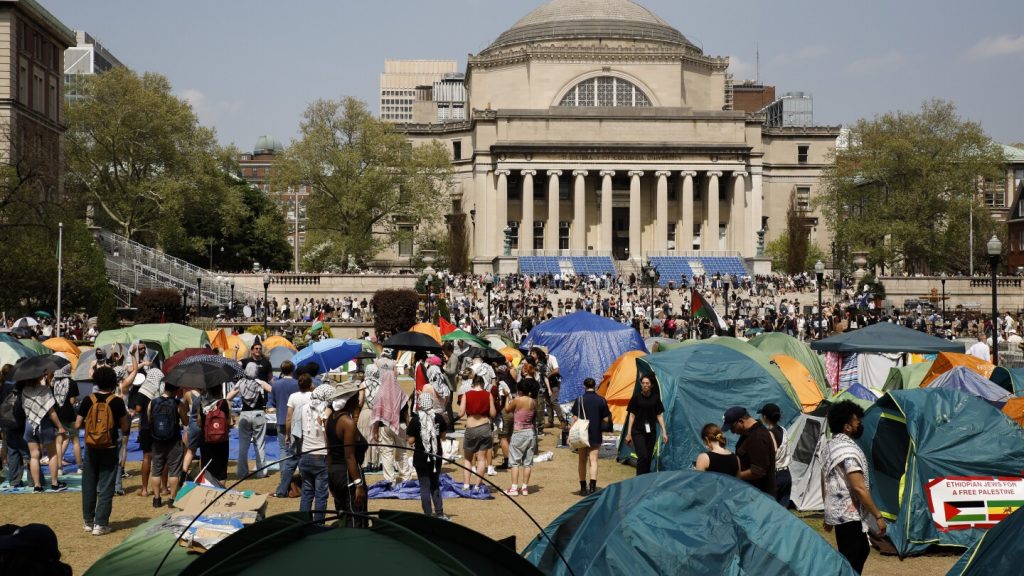Columbia University is gearing up for a new school year with the return of classes, but tensions remain high following pro-Palestinian protests that took place last semester. The university’s new leadership has been engaging in listening sessions, releasing reports on campus antisemitism, and implementing new protest guidelines to manage potential disruptions. Despite these efforts, student organizers are determined to continue their actions until the university ends its ties with companies associated with Israel.
The resignation of Columbia’s former president, Minouche Shafik, after bringing police onto campus to clear out protest encampments has left a sense of uncertainty as the new school year begins. Interim President Katrina Armstrong has been meeting with students on both sides of the issue, trying to find a balance between free expression and maintaining a safe learning environment. However, some faculty members remain skeptical about the potential for major disruptions to occur once again.
A recent report by Columbia’s task force on antisemitism accused the university of allowing pervasive antisemitism to exist on campus following a Hamas attack. The recommendations include revamping disciplinary processes and implementing sensitivity training for students and staff. As demonstrations against the war in Gaza begin to surface on college campuses, concerns about potential disruptions are growing among faculty members and students alike.
Security measures have been heightened on Columbia’s campus, with guarded entrances and private security guards standing watch. Some students have expressed concerns about the unwelcoming environment created by the increased security, while others believe that the university needs to establish clearer guidelines to prevent further turmoil. The university has faced criticism for its handling of the student protesters, with ongoing disciplinary cases and dropped charges against many of the students arrested last semester.
In response to concerns raised by Jewish students about campus safety, Columbia has introduced a “safe passage liaison” for those worried about protest activity. The university has also removed administrators who engaged in inappropriate private text exchanges relating to Jewish speakers. Columbia has updated its guidelines around protests and developed new training on antisemitism and Islamophobia for incoming students. The debate around the definition of antisemitism and the boundaries of free speech continues to be a contentious issue on college campuses.
As the new school year begins, instructors at Columbia are entering the semester uncertain about what they can discuss in the classroom. Many anticipate conversations about the war in Gaza and the reactions on campus. The task force report defines antisemitism as prejudice, discrimination, hate, or violence directed at Jews and includes double standards applied to Israel. The ongoing debate about the definition of antisemitism and free speech is likely to continue to be a central issue at Columbia and other universities dealing with similar tensions.


